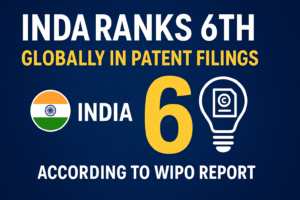In a major development in India’s intellectual property landscape, the Bombay High Court has rejected TikTok Ltd’s plea challenging the Trademark Registrar’s refusal to recognize the short-video platform’s name, “TikTok,” as a well-known trademark in India. The court cited national security concerns and the continuing ban on the platform as critical reasons for its decision.
Background of the Case
TikTok, owned by China-based ByteDance, had earlier registered its trademark in India and subsequently sought its designation as a well-known trademark under Rule 124 of the Trade Marks Rules, 2017. This status offers enhanced legal protection from infringement, imitation, or misuse across all product categories.However, the Registrar of Trademarks denied TikTok’s application in October 2023, citing the platform’s ban in India since 2020. The app was one of several Chinese-origin platforms banned under Section 69A of the Information Technology Act on grounds of national sovereignty and data security.High Court Ruling:
Legality Over Global Popularity
Delivering the verdict on June 10, 2025, Justice Manish Pitale of the Bombay High Court upheld the Registrar’s rejection and ruled that:TikTok’s global fame does not warrant “well-known” trademark status in India.Ongoing non-operation in India due to a government ban undermines any claim of local distinctiveness or reputation.The Registrar was justified in factoring in issues of sovereignty, public order, and national security while denying the application.The court clarified that operation within Indian jurisdiction is crucial for securing enhanced intellectual property status and that foreign entities must adhere to Indian legal standards and geopolitical considerations.
TikTok’s Legal Arguments Fall Short
TikTok argued through its counsel that the Registrar had failed to evaluate statutory criteria under Sections 11(6) to 11(9) of the Trade Marks Act, including global recognition, market presence, and history of enforcement. It maintained that the ban should not negate the app’s branding rights.However, the court found no procedural error or legal flaw in the Registrar’s decision, concluding that the considerations of national interest rightfully outweighed any commercial or reputational merit.
Implications for Foreign Digital Platforms
The judgment marks a precedent-setting interpretation of Indian IP law, particularly in relation to well-known trademarks under Rule 124. Legal experts suggest that this case underscores the importance of active, lawful operation within India as a precondition for obtaining elevated IP status.Moreover, the ruling reinforces that government-imposed restrictions and national security assessments are legitimate grounds for denying well-known status to foreign platforms, even if globally recognized.
⚠️ Disclaimer:
This news article is based on publicly available legal documents and journalistic sources. It is intended for informational purposes only and does not constitute legal advice or represent the views of TikTok Ltd, the Bombay High Court, or any government body. For legal interpretation or advice, please consult a licensed intellectual property professional.




